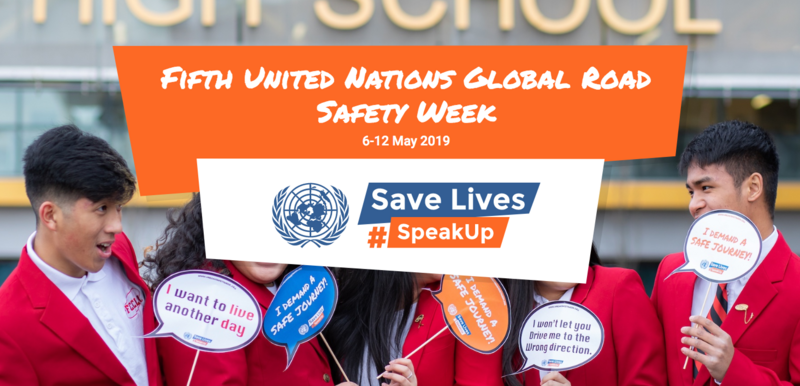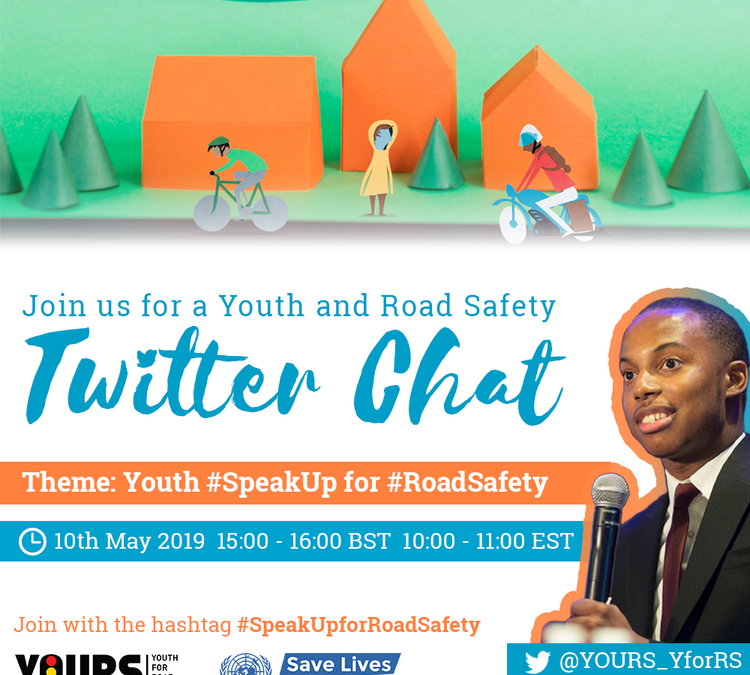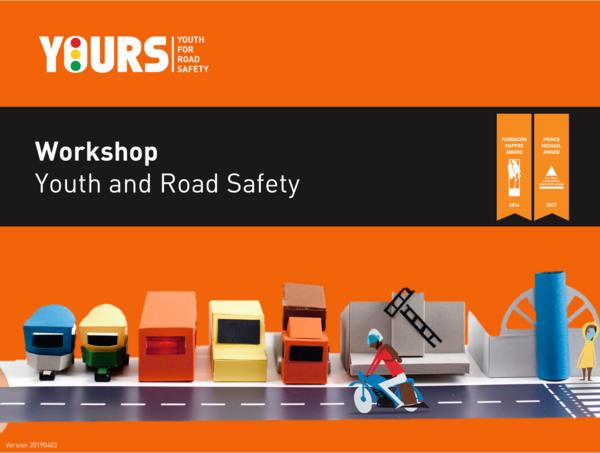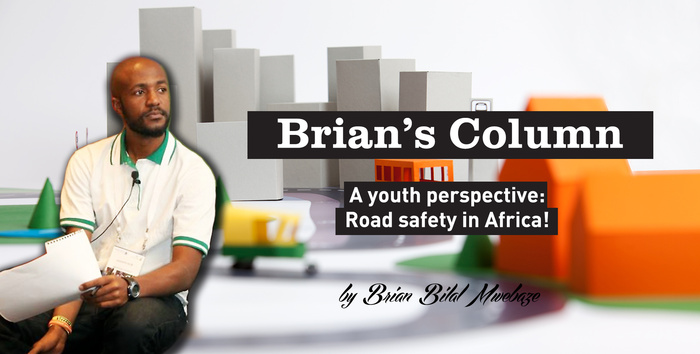
Commonwealth Road Safety Initiative officially launches in London
Every year over 210,000 people are killed in road crashes and millions more are seriously injured in Commonwealth countries. Today road traffic injuries are the leading cause of death for children and young people aged 5-29 years. This is a major challenge for Commonwealth countries as over 60% of their populations are under 30. Improved road safety must become a major priority for Commonwealth countries concerned to protect the wellbeing and health of their children and young people.

Commonwealth Road Safety Initiative launched by the Towards Zero Foundation: setting an agenda to halve road fatalities and serious injuries by 2030
Road safety in the 53 countries of the Commonwealth is very diverse. Fatality rates in road crashes range from 3 to 35 per 100,000 population. However, in nearly all Commonwealth countries fatality and injury rates are rising rather than falling. In 2015 Commonwealth countries strongly supported the United Nations Sustainable Development Goals (SDGs) which include commitments to road safety. Urgent action is now required to ensure that road deaths and serious injuries across the Commonwealth are halved by 2030.
Hosted by the Towards Zero Foundation, under the patronage of His Royal Highness, Prince Michael of Kent, the new Commonwealth Road Safety Initiative (CRSI) addressed the action needed to prevent a decade of predictable and preventable death and serious injury on the roads of Commonwealth countries.

Statement by HRH Prince Michael of Kent
“I am proud to serve as the Patron of the Commonwealth Road Safety Initiative (CRSI). The purpose of the CRSI is to raise the profile of road safety on the agenda of the Commonwealth and encourage stronger action by its 53 members countries to reduce traffic deaths and serious injuries. Every year over 210,000 people are killed in road crashes in Commonwealth countries and many more experience life changing injuries. Children and young people, accounting for over 60% of the population of the Commonwealth, are especially at risk.
Based on the Commonwealth’s current priorities for youth, health, and sustainable development, the CRSI aims to halve the number of people killed or seriously injured in a new decade of action for road safety to 2030. Bringing together experts and practitioners from across the Commonwealth, the Initiative will encourage implementation of effective, evidence based, policies that can save lives.
Even though the road safety performance of many Commonwealth country differs widely, they all face a common challenge to prevent a rising tide of road crash injury. Asdemand for road transport increases the task of improving road safety becomes ever more urgent. We need a combination of safer roads, safer road users, and safer vehicles, all managed together in a road transport system that is safer and sustainable by design. And with road traffic injuries now the leading cause of death for children and young adults aged 5-29 years, I strongly believe that road safety mustbe also become a major priority in child and adolescent health. We know that most traffic deaths and serious injuries are predictable and preventable. The Commonwealth is a unique forum that is well placed to share expertise and to foster partnerships for road injury prevention. That is why I believe the Commonwealth in the decade ahead can and should become a world leader in road safety”.
The CRSI has brought together a distinguished panel of road safety experts to prepare a report of recommendations for Commonwealth countries. Building on established Commonwealth commitments to youth, health, and the SDGs, the CRSI will highlight the importance of:
- setting a Commonwealth target to halve road deaths and serious injuries by 2030
- prioritising road safety as a key focus issue for child, youth and adolescent health;
- adopting the Safe System Approach to road injury prevention in high, middle, & low-income Commonwealth countries;
- action to promote safer roads, safer vehicles, and safer road users;
- promoting good governance and road safety;
- promoting workplace road safety;
- building multi-sector Commonwealth partnerships for road safety;
- integrating road safety within the Sustainable Development Goals.

Members of the Commonwealth Road Safety Initiative Expert Panel includes our staff Manpreet Darroch
For more information visit www.commonwealthrsi.org






 NGOs at the Global Meeting discussed actions that would enable governments, NGOs, and other stakeholders together to reduce the unacceptable and preventable loss of life on the world’s roads. This included preparations for the upcoming UN-mandated Third Global Ministerial Conference on Road Safety which will be held in Sweden next year and plans for the upcoming UN Global Road Safety Week, which will be held 6–12 May 2019. YOURS have worked with the United Nations Road Safety Collaboration (UNRSC) to develooped the 5th UNGRSW campaign and will be organizing a 2nd World Youth Assembly for Road Safety as a prevent to the 3rd Ministeral Conference on Road Safety in Sweden. This event will draw much needed attention to the global crisis facing youth on the world’s roads and bring youth to the decision making table as key partners, part of the road safety solution.
NGOs at the Global Meeting discussed actions that would enable governments, NGOs, and other stakeholders together to reduce the unacceptable and preventable loss of life on the world’s roads. This included preparations for the upcoming UN-mandated Third Global Ministerial Conference on Road Safety which will be held in Sweden next year and plans for the upcoming UN Global Road Safety Week, which will be held 6–12 May 2019. YOURS have worked with the United Nations Road Safety Collaboration (UNRSC) to develooped the 5th UNGRSW campaign and will be organizing a 2nd World Youth Assembly for Road Safety as a prevent to the 3rd Ministeral Conference on Road Safety in Sweden. This event will draw much needed attention to the global crisis facing youth on the world’s roads and bring youth to the decision making table as key partners, part of the road safety solution. Lotte Brondum, Executive Director, the Global Alliance of NGOs for Road Safety, said, “Every day 3,700 people die on the worlds’ roads. This is a tragedy of pandemic proportions. Each victim is not just a number but a mother, father, sister, brother, child, or friend.
Lotte Brondum, Executive Director, the Global Alliance of NGOs for Road Safety, said, “Every day 3,700 people die on the worlds’ roads. This is a tragedy of pandemic proportions. Each victim is not just a number but a mother, father, sister, brother, child, or friend.




 In Malawi, on the morning hours of 11th of March 2019 five people sustained various degrees of injuries following a road crash at
In Malawi, on the morning hours of 11th of March 2019 five people sustained various degrees of injuries following a road crash at